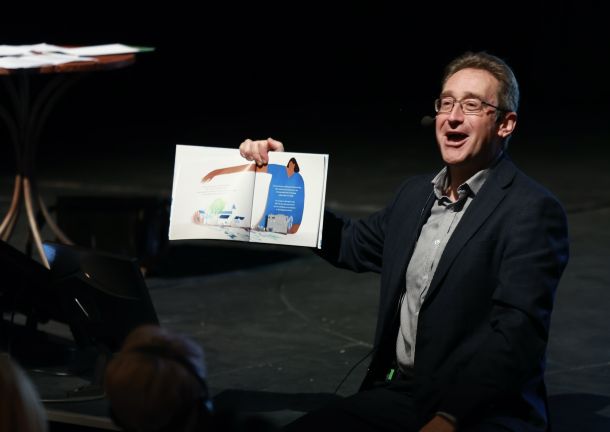
Encourage a love of reading
Reading is one of the fundamental skills that develop in childhood and, in addition to the academic benefit it brings, it is also a lifelong skill. Reading enriches vocabulary, increases attention and promotes analytical thinking..
Beyond the efforts made by teachers and schools to promote literacy and a love of reading, the best results can be achieved at home by parents. The family is where the child comes home, and it is parents who can nurture an appetite for reading.
Although in theory things are pretty clear, many parents find it difficult to cultivate a love of reading in their children, and the increasing competition of content and video games is a hindrance. Apart from the abundance of online entertainment, other reasons why children don't like to read are the perception that reading is an obligation, the belief that reading is boring, or that they haven't found the right book to stimulate their desire to read.
When the parent discovers the reasons why the child does not like to read, but also knows what they are passionate about and what attracts them, they can find ways to encourage their child to read. There are also some 'tricks' parents can use to get closer to their children and develop reading habits.
How do we encourage children to read?
Focus on the child, not the reading
Don't present reading as another chore to do, but as an enjoyable activity that your child feels benefits from. Find out what your child's preferences are, what areas appeal to them and where they would like to know more. Find out what their reader identity is, i.e. what they like to read, what might motivate them to read more, where they would like to read.
Gather all the information you have gained and create a mental and physical space for reading. The mental space is created by removing other attractions that might drive away the child's 'boredom' and thus push him/her towards reading. The physical space should be comfortable, without too much background noise and distractions. It can even be a specially designed space, with elements that provide comfort for the child.
Read the same books at first
Books advance early language development. At first, children notice the pictures, then learn to turn the pages, then realise that the story is the same each time. Rhyming books are beneficial because rhyming helps phonemic awareness - recognising repetition and sounds. Children love rhyming because they learn what's next and can gradually anticipate what happens next. Be a role model for your child and make reading a connecting activity We all know that a child will imitate the behaviour they see, which will hang on much longer than what they are told. So double down on what you tell him about reading by your own example and let him see you with a book in your hand rather than on the TV or with his eyes on the phone screen.
Then, make reading an activity that you do together. Start by reading books in the evenings, at bedtime or during quiet times. Read aloud and encourage children to do so. Create a 'reading time' in your daily schedule. As you get into the habit, take a book each and read. Older children especially won't feel pressured, but neither will they feel pressured by a compulsory activity.
Discuss together what you are reading, seek to discover together the story behind the books, debate which books have been screened, which have been banned at certain times in history, etc. Create curiosity around the books to pique children's interest.
Use technology and entertainment
Don't limit reading only to books in classic format. Try introducing your child to audiobooks to understand the structure of a story and to grasp the narrative thread and how it is constructed. Relive memories from your own childhood of listening to stories on the record player and enthusiastically describe your favourite stories from back then.
Use a kindle, which can be much more appealing to kids these days than books in classic format. Encourage your child to browse and download for themselves which books they would like to read.
Magazines, even comic books, can be a first step in getting children interested in reading. Subscribe to a children's magazine and create a real moment out of receiving and discovering it. Some magazines also have toys, and linking reading to small rewards is a good incentive to start with.
If there are screenings, read the book first and then see the film together and discuss the differences and how the book adaptation was made.
Go to the library together and create an experience out of this activity
There are libraries that are extremely attractive for children, which also contain play areas and board game rooms, so you can spend a day at the library together reading and doing other fun and enjoyable activities.
Above all, remember that reading should be fun, not frustrating. With a little focus and direction, you can make reading an enjoyable activity for children from a young age.
You can access some extra information about the topic here and here.

Kinderpedia
The complete communication and management solution for schools and childcare centres.
Simplifies teachers' work and brings parents closer to their children's school progress.
Recommended articles
Want to improve your center quality? Kinderpedia is here to help! Not only do we provide thousands of informational content pieces like blog posts, podcasts, webinars and more, we are also makers of the #1 Rated and Reviewed Childcare Software.







